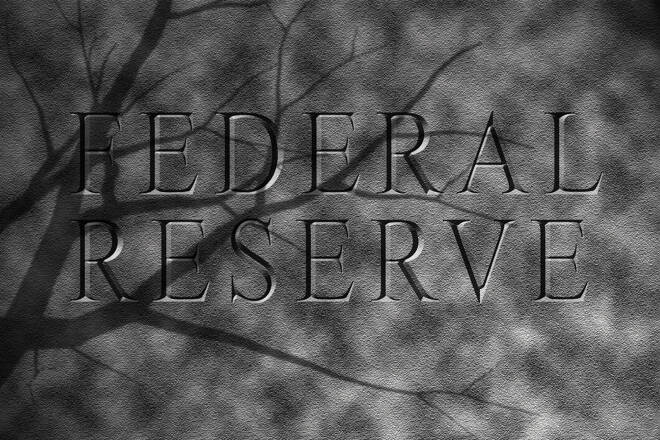Advertisement
Advertisement
Fed Likely to Pause Rate Hikes as Labor Market Cools
By:
Fed expected to pause rate hikes after May policy meeting as job openings decline signals cooling labor market.
Highlights
- Job openings decline may lead to Fed pause
- Labor market cooling despite rate hikes
- Investors predict Fed easing policy as early as July
Why the Fed Will Likely Pause Rate Hikes After May Meeting
Recent data showing a decline in job openings has fueled speculation that the Federal Reserve will pause its rate hikes after the May meeting. The decline, which saw available positions fall below 10 million for the first time in nearly two years, is a sign that the red-hot labor market may be starting to cool down.
Fed’s Targeted Efforts
The Fed has targeted the labor market in its efforts to bring down inflation, which had been running at a 41-year high in the summer of 2022. Despite raising benchmark interest rates nine times since March 2022, the moves appeared to have little impact on the jobs situation. However, the latest decline in job openings could signal that the Fed’s efforts are finally starting to have an effect.
Potential Pause
The Fed could consider pausing rate hikes at the next meeting if the upcoming employment report shows signs of material weakness and the March consumer price index report reveals lower inflation. The JOLTS data, which runs a month behind, is closely watched by the Fed for signs of labor slack. The decline in job openings, hires, and separations could be an indication that the labor market is starting to loosen as the economy slows.
Industry Impacts
Professional and business services saw a slide of 278,000 job openings on the month, while trade, transportation and utilities decreased 210,000. Accommodation and food services, an important sector to gauge consumer demand, dropped 125,000. On the positive side, there were 129,000 new construction jobs available, though that was the only category that saw a noticeable bump.
Investor Reactions
Following the release of the JOLTS report, investors upped their bets to a roughly 60% probability of no move following the May 2 to 3 meeting, compared to about a 43% chance the day before, based on pricing of interest-rate futures. They also now expect the Fed will start easing policy as early as July, cutting its benchmark rate to near 4% by the end of the year. However, some experts warn that investors may be too confident that the Fed will cut interest rates this year and could pay the price later.
Inflation vs. Recession
The Fed has projected a shallow recession for later this year, with the median expectation for gross domestic product growth for the full year at 0.4%. Officials estimate a 4.5% unemployment rate by the end of the year, from the current 3.6%. While this would be challenging, the Fed is likely to prioritize its inflation fight, particularly if the data continue to indicate elevated prices.
Conclusion
While the job openings decline may be a sign that the labor market is starting to cool down, the Fed is likely to prioritize its inflation fight before considering rate cuts. Investors may be too confident that the Fed will cut interest rates this year and should consider focusing on investments like fixed income that is indexed to inflation, as well as very short-duration government bonds. All in all, the data suggests that the Fed will pause rate hikes after the May meeting but is unlikely to cut rates anytime soon.
For a look at all of today’s economic events, check out our economic calendar.
About the Author
James Hyerczykauthor
James Hyerczyk is a U.S. based seasoned technical analyst and educator with over 40 years of experience in market analysis and trading, specializing in chart patterns and price movement. He is the author of two books on technical analysis and has a background in both futures and stock markets.
Advertisement
